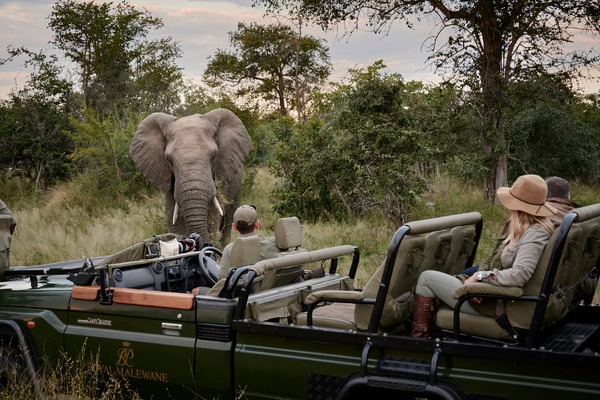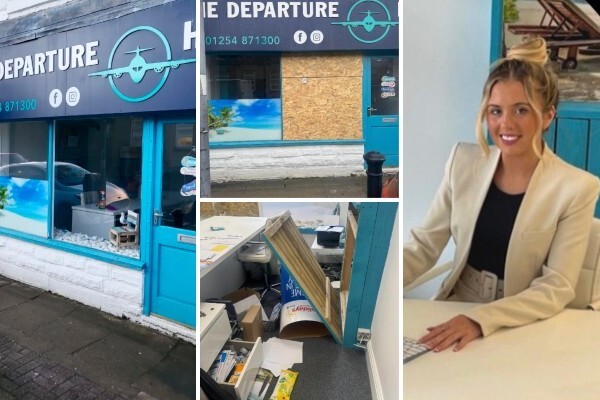How to successfully onboard new recruits from outside of travel
 Abigail Healy
Abigail HealyTaking on staff who are new to the industry can open up a wide pool of talent but how do managers train these inexperienced employees to deliver the standards of service they and their customers expect?
A rock star team of sales staff can hugely boost a travel agency’s success but finding new team members isn’t always easy.
Increasingly agencies are casting their nets beyond the safe harbour of the travel industry to find candidates with potential. But where do you start when you have a new recruit with no prior knowledge of the systems, product and customer service skills that your business requires? We speak to agencies with first-hand experience of onboarding new-to-travel recruits successfully.
ALL IN THE TIMING
When running a busy agency, a key concern is how long it might take to ramp up staff with no prior experience. Abi Hyslop runs Designer Travel’s academy for new recruits. She explains that this dedicated section of the business allows the agency to take on one new-to-travel employee each month, aiming for them to be selling independently after a year.
“New recruits have a two-day intensive induction. Day one is a webinar and on day two I meet with them face-to-face. Then there are follow-ups with a business development manager and they can start selling with me as a mentor,” she explains.
Who makes a perfect new-to-travel recruit?
Karen Simmonds, Travel Matters, says: “Individuals who share a similar outlook to us towards people and planet – being kind to one another; treating each other respectfully and with dignity.”
Training programmes can vary hugely from agency to agency. Oasis Travel’s Peter McCabe says its onboarding programme takes approximately six months to complete while Independent Travel Experts (ITE) managing director, Gary Gillespie, explains that the business has a 12-week New to Travel Programme.
GETTING OFF THE GROUND
While larger agencies may have dedicated training departments, learning “on the job” is often the only way for smaller agencies to train up new staff. Hannah Porter, owner of Marlborough-based Travel by Hannah, says: “With our development approach the new agent could in theory book a trip the day they start – monitored, obviously. They are encouraged to sit with other team members when completing bookings or taking enquiries.”
Karen Simmonds, Travel Matters chief executive and founder, explains that new recruits have weekly online meetings for three months and are trained in lead generation via a process the agency calls “brainstorming frogs”.
Agents write a list of all the people they are connected to such as friends, recreational and occupational contacts and let them know they have started a new business planning holidays. “Our training manager, Catherine Gallagher, likes to say that it just takes one client to get started. Do a good job and this will lead to the next one and the next one,” she asserts.
Who makes a perfect new-to-travel recruit?
Abi Hyslop, Designer Travel, says: “Those who network well, have customer service experience or a previous role that was sales-based and who go on luxury or long-haul holidays themselves.”
TOOLS OF THE TRADE
Both Porter and McCabe highlight different learning styles. Porter says even at interview stages she will discuss how individuals best develop skills and tailor a growth plan specifically to them. She encourages each recruit to create their own reference book they can turn to before asking the team for help.
The breadth of suppliers available can be a minefield for agents new to the industry and one of Porter’s most helpful tools is a “super spreadsheet” which lists the suppliers that best fit various holiday requirements.
In a similar vein, McCabe says his team at Oasis Travel have found the TTG Supplier Directory a useful tool to help new recruits understand which companies to use for specific enquiries.
Gillespie says that ITE has created a separate guide on dynamic packaging. “Before new starters can start creating their own packages, they must pass a quiz on this topic due to its complexity and the additional responsibilities under the Package Travel Regulations,” he explains.
Who makes a perfect new-to-travel recruit?
Gary Gillespie, ITE, says: “Shared traits among our top performers include a solid business plan, transferable skills, a high level of enthusiasm, and an entrepreneurial mindset.”
BUMPS IN THE ROAD
As with anything new, training from scratch isn’t always plain sailing and there are likely to be obstacles to overcome. Hyslop says the hardest thing for new agents to realise is the breadth of suppliers they can use and how much goes into the booking process given Designer Travel expects its agents to “VIP all customers”. Gillespie finds that many of its new homeworkers believe they will start receiving enquiries quickly, but the reality often differs.
“To reassure them, we share real-life examples of the time it took for other members to establish their business, keeping them motivated and preventing any disheartenment,” he says.
At Travel Matters, Simmonds says the trickiest part is helping new staff understand the value of an agent over online booking platforms.
“A large part of our training is around qualifying customers. Part of this includes telling prospects up front how we work and being brave enough to turn away clients that are not the right fit,” she adds.
ALL IN THE DETAIL
While McCabe finds those new to the industry may “be prone to getting lost in the detail of an enquiry” and need help to step back and ensure they are meeting the customers’ key needs, Porter often finds they need help to take more detail.
“Once they understand how to take a detailed and personalised enquiry they can tailor the options to that individual, which results in more sales and positive reviews for them.”
Ultimately McCabe says it’s important to help new recruits avoid becoming overwhelmed by the sheer variety and infinite possibilities within travel.
“Help them to see that this is what makes it exciting, always challenging and therefore the most wonderful career for developing themselves,” he enthuses.
Tips for industry newcomers
Travel Counsellor Mahul Patel has worked as a travel consultant for 10 years now, and this is the advice he shares with TCs that come from outside the industry:
1. What is your top networking tip for a new-to-travel agent?
Say yes to everything, if there is an event you can attend just go. Whether it’s meeting up with other travel agents, suppliers or potential new customers the more you are visible the more exposure you’ll receive. The more people you meet, the more you can grow your potential reach by.
2. How do you coach fellow TCs to talk up their skills and expertise?
Over the years I’ve learnt that not everything is about price when it comes to asking someone to book your holiday. Skills and expertise go a long way to winning over a customer so always use that. You have to show them why you’re better than anyone else.
3. What’s the secret to giving a good presentation?
Stick to facts and don’t over think it. Make your point and then move on to the next. Don’t try and over explain something. You’ll just lose their focus.
4. How do you know when it’s best to walk away from an enquiry?
If the client doesn’t understand how you work and is constantly focusing on the price rather than what else you bring to the table then they won’t value your work. It may be best to walk away at that point, with the view that you can't win every client, and save that energy on a client who values you. However, it goes without saying that it is always worth leaving every conversation on great terms as you never know when you’ll be doing business with that person again.
Sign up for weekday travel news and analysis straight to your inbox

Abigail Healy
Supplier Directory
Find contacts for 260+ travel suppliers. Type name, company or destination.














